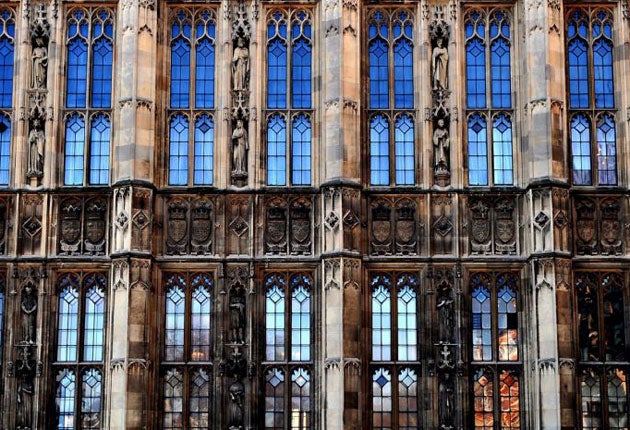Police drop cash-for-amendments probe

Scotland Yard will not launch a formal investigation into the cash-for-amendments affair, it was announced today.
In a statement, the force said it had "carefully" reviewed allegations against peers including Lord Taylor of Blackburn and Lord Truscott.
However, it was "far from clear" how criminal law applied to members of the House of Lords.
The statement said: "The application of the criminal law to members of the House of Lords in the circumstances that have arisen here is far from clear.
"In addition, there are very clear difficulties in gathering and adducing evidence in these circumstances in the context of Parliamentary Privilege.
"These factors, when set alongside the preliminary examination, lead us to the decision that the Metropolitan Police will not undertake a criminal inquiry into any of the allegations raised."
The controversy was sparked after undercover reporters from the Sunday Times approached peers claiming to represent companies who wanted to recruit them as advisers.
Four Lords - Moonie, Truscott, Snape and Taylor of Blackburn - had been ready to help change the law to favour their prospective employers, according to the newspaper.
Lib Dem home affairs spokesman Chris Huhne asked the police to look at the allegations against Lords Truscott and Taylor, and subsequently asked for similar claims against other peers to be considered.
But in its statement, the Yard said: "We have carefully examined the position of Lord Taylor and Lord Truscott in the context of a possible investigation for the common law offence of bribery.
"We have also considered possible offences of misconduct in public office. In addition, we have sought and obtained written legal advice from the Crown Prosecution Service."
The force went on: "The internal governance arrangements of the House, under the Sub-Committee on Lords' Interests, has already begun a preliminary examination into these cases and have announced their intention to deal robustly with any adverse findings against members.
"There is therefore in place an internal governance structure able to deal with any findings against the Code of Conduct."
A Metropolitan Police spokeswoman confirmed that the decision meant no criminal investigation would take place into any of the peers embroiled in the row unless new evidence emerged.
The final decision not to go ahead with an inquiry was made by Assistant Commissioner John Yates - the officer who led the abortive cash-for-honours investigation.
Police held talks with Leader of the Upper House Lady Royall, who has admitted sleaze rules need tightening, before reaching their conclusion.
Mr Huhne suggested Lords Taylor and Truscott might have breached bribery law after allegedly telling reporters they secured amendments for paying clients in the past.
A welter of fresh claims then emerged, leading Mr Huhne to file additional complaints against Lord Berkeley, Lord O'Neill, Baroness Valentine and Baroness Coussins.
Lord O'Neill, the paid president of the Specialist Engineering Contractors' Group, reportedly tabled amendments to a bill on the construction industry. He later withdrew them to avoid any suggestion of a conflict of interest.
Lord Berkeley, who is said to earn about £40,000 a year as chairman of the Rail Freight Group, apparently tried to amend bills on Crossrail and the Channel Tunnel Rail Link in the interest of the freight industry.
Baroness Valentine, chief executive of business group London First, reportedly tabled amendments to a planning bill, trying to make changes for which her own organisation had campaigned.
Baroness Coussins, who advises the food and drink industry on corporate responsibility, is said to have tried to reduce the impact of a bill on alcohol health warnings.
All deny wrongdoing, and say they declared their interests.
Justice Secretary Jack Straw confirmed earlier this month that he wanted punishments beefed up so that misbehaving peers could be kicked out of the upper chamber, rather than merely ordered to apologise.
The measures, being added to the forthcoming Constitutional Renewal Bill, could be retrospective - meaning that they would cover those caught up in the cash-for-amendments affair.
Other disgraced peers with criminal convictions could also face being ejected, including author Lord Archer of Weston-super-Mare and newspaper mogul Lord Black of Crossharbour.
Jeffrey Archer received a four-year prison sentence for perjury and perverting the course of justice, while Conrad Black has been jailed in the US for fraud.
Bookmark popover
Removed from bookmarks